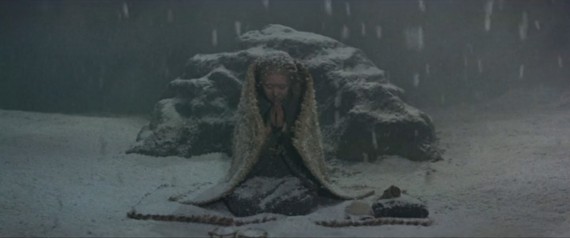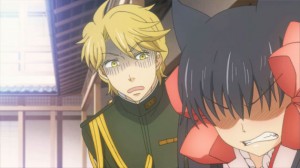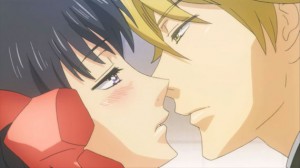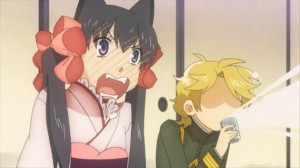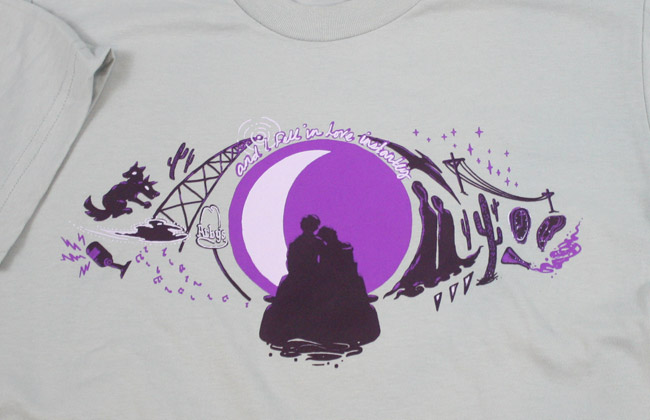
Last November, I fell head-over-heels in love with a relationship between two fictional characters.
I’d been listening to Welcome to Night Vale off and on since the beginning of 2014, mainly in binges during long car rides. It was November when I finally caught up on the series, experiencing the major arc of 2014 all in a rush. The story was incredible, the expert culmination of two years of plotlines. But what stuck with me most was the blossoming relationship between a radio host and a scientist, played out gradually, naturally, beautifully. I had to go back and listen to the entire series again. (And again.)
When Carlos comes to town in the very first episode, Cecil says, “He grinned, and everything about him was perfect. And I fell in love instantly.” At that point, I honestly never imagined it would turn into a relationship. I figured maybe everyone in town would fall in love with Carlos, the beautiful stranger…that it would just be another weird thing that happened in Night Vale.
(It turns out that even the writers didn’t know Cecil and Carlos would become a thing. It just…happened, organically.)
Cecil’s apparently one-sided crush continues, mentioned here and there throughout the first year of episodes. In episode 16, Carlos calls Cecil for the first time, and Cecil breathlessly tells his radio audience, “Guess who called me this weekend? Carlos!” It’s adorable and funny and a little sad, because you get the impression from that episode that Carlos has no interest in Cecil at all. We have only seen Cecil’s perspective at this point, so we have limited data, but Carlos has been pretty focused on science, ignoring Cecil’s flirting, and he’s always turned down Cecil’s requests to get together. This time he asks Cecil to meet, but it’s about something he’s investigating. So when Cecil says “It’s just coffee, but maybe it’s more! Maybe lots more,” it’s played for humor, because obviously Carlos doesn’t think it’s a date.
We don’t get to hear that coffee non-date, nor the resolution thereof. In fact, we don’t hear about Carlos again for quite a few episodes. Cecil mentions scientists generally in the interim, and maybe one of those scientists is Carlos, but we don’t get any more rhapsodizing about Carlos until episode 25.
If Cecil was upset about the coffee thing, he’s over it now, dreamily describing how wonderful Carlos is and pointing out that it has been exactly one year since the scientist came to town. Cecil plans to give Carlos a trophy to mark the occasion. The one-sided crush humor continues! But then it’s turned on its head at the end of the episode. After surviving a life-threatening situation, Carlos asks Cecil to come meet him. “After everything that happened, I just wanted to see you.” We realize he’s been running from his own feelings, and it is all ridiculously romantic.
This is where a lot of stories end. Happily ever after! But not this story, and that is why I have fallen so hard for it. We get to experience Cecil and Carlos’ first date. We then get little windows into their relationship—Cecil still adores Carlos, but now there are comments like “lovely Carlos, with his perfect teeth and hair and penchant for sometimes chewing a little more loudly than is preferred” (episode 30) and “Carlos says he would like to study it, but that he promised to make a certain person dinner, and he has to learn how to put other things besides science first. Some of this realization might have come with help from those around him” (episode 31) and “I grabbed my phone to tell Carlos that if I didn’t make it home tonight, it wasn’t because I didn’t love him or didn’t want to watch a documentary on special scientific graphs, or was too obsessed with my job to relax and enjoy a good meal and some television” (episode 38).
These examples let us see that they’re negotiating their relationship. They have their irritations with each other, but they’re committed to being active participants in their love story. They’re compromising and thinking about the other person’s needs. The entire plot of the live show episode “Condos” (available on iTunes; I highly recommend it) was built around Cecil and Carlos realizing that perfection is unattainable, and that they wouldn’t want perfection anyway.
So many fictional “love stories” are dependent on the feeling of love enduring “naturally”—that is, without any effort on the part of the participants in the relationship. In those stories, the appearance of any new attractive character puts the relationship at risk. The Night Vale writers actually play on this trope in episode 51, making it look like Cecil might have competition for Carlos’ affection. Cecil and Carlos are talking on the phone, as Carlos is now trapped in another dimension referred to as the “desert otherworld”. Carlos casually mentions someone named Doug; when Cecil asks who Doug is, the call drops. Later, Carlos explains that Doug is apparently important in this world and describes how Doug saved him from falling rocks, and this goes on just long enough for you to start thinking Oh no. But then Carlos says how worried he was that he’d lost his only connection to Cecil when he dropped his phone, that he doesn’t care about making friends in the otherworld, “and the only person I truly care about isn’t in this desert anyway.” The entire Doug thing was a genius troll by the writers and I loved it.
As the storyline with Carlos in the desert continues, a lot of fans have grown concerned that Cecil and Carlos’ relationship is in trouble. I am not one of those people.
Carlos has asked Cecil to stop using the word “trapped.” We don’t know why, but he wants to spin it as though he is there by choice. However, he still hasn’t found a way to get himself back to Night Vale, or to get Cecil to the desert, so obviously “trapped” is still a valid descriptor. Cecil has a lot of trouble with this, but he does his best. In the meantime, Carlos, who had been bad about getting distracted by science and not contacting Cecil, has now apparently been calling (and Snapchatting, and whatnot) regularly. Both of these examples show that Cecil and Carlos are making their relationship a priority.
Obviously, I would love for Cecil and Carlos to be in the same dimension again, but I don’t think their separation spells doom for their relationship. These guys are committed to each other. Everything we’ve seen demonstrates that Cecil and Carlos aren’t depending on some magical outside force to keep them in love with each other. They are choosing, every day, to love each other.
And that is why I’m in love with their relationship.
